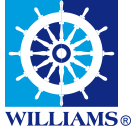On October 27, the Governor of Paraná, Carlos Massa Ratinho Junior and Interbulk S.A, signed a protocol of intentions that foresees the company’s adhesion to the state’s tax benefits program. Private investment will be R$ 159.09 million. In return, Paraná will expand the movement of solid bulk (nitrogen fertilizers, phosphates, and potassium) through the Port of Antonina. The group intends to install a fertilizer-mixing unit in two phases with the capacity to produce up to one million tons per year. The complex will be built about 200 meters from gate B of the Ponta do Félix Port Terminal. The Director-President of Ponta do Félix S.A. Port Terminals (TPPF), Gilberto Birkhan, explained that the project will take place in stages. The first provides for the construction of 8 warehouses with a static capacity of 12 thousand tons each, totaling 24,000 m2, with handling of up to 96,000 tons in bulk and bagging. It will also have support areas and the installation of two road scales of 30 meters each. The estimated cost of this phase is R$ 60 million. Subsequently, the company will structure the installation of the fertilizer-mixing unit with three bagging dispatch lines with a capacity of 300 tons per hour. The project also includes another structured warehouse with a static capacity of 100,000 tons, totaling 13,300 square meters, two new road scales, and a line for receiving raw materials and supplies with a capacity of 300 tons per hour. Almost half of everything that the ports of Paraná imported, from January to August this year, is fertilizer. There were 6.8 million tons of fertilizer, representing an increase of 4.6%, in relation to the volume imported in the same period last year – 6.5 million tons. About 93.5% of the fertilizers discharged in the ports of Paraná are solid bulk. The rest is divided between liquid bulk and fertilizers that arrive in containers. Parana’s terminals continue to be the main fertilizer-importing ports in the country, receiving about 32% of what arrives in Brazil. Russia, China, Canada, Morocco, and Belarus are the top five sources of fertilizers arriving through the state’s ports.
Source: Datamar News






